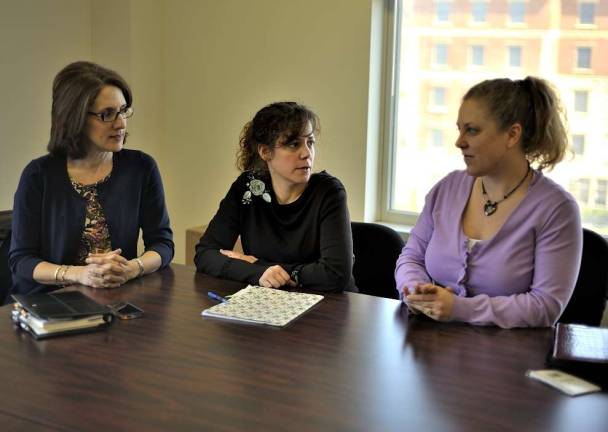Sussex to reform mental health system

SUSSEX COUNTY — After the passage of the Affordable Care Act and in the wake of mass shootings committed by mentally impaired gunmen, a keener focus has emerged locally and nationally on how to better serve people with mental illness.
Of the 8.7 million New Jersey residents in 2005, about 259,000 adults and 93,000 children experienced serious mental illness, said Dr. Debra Koss, chair of the county’s Mental Health Planning Committee.
Koss, who also practices child, adolescent and adult psychiatry in Sparta, said solid numbers on how many people are suffering mental illness in Sussex are simply unknown.
“I’m not going to be able to give you a county statistic on that because we don’t have the true data,” Koss said.
For much of the last decade, Sussex County officials and residents have listed mental health services as one of the most pressing needs of its rural population.
Now an ambitious new plan attempts to measure and relieve that need, and in order to carry it out, the county has to start from scratch.
“This planning committee has taken it to the next level,” said Director Melissa Latronica of the Sussex County Department of Human Services. “It’s really more of a comprehensive plan.”
Hidden in the highlands
There is no central office for mental health services, no county clinic and no county psychiatrists in Sussex County. The only services offered come from contracts for care through private health care providers.
The stigma that sometimes results from having a diagnosed mental illness can also contribute to a hidden population that needs help but fears seeking it.
“There’s a lot of dynamics,” said Christine Florio, coordinator of the county’s Human Services Advisory Council. “Not having a big county mental health center, people don’t always know where to go. It’s not always out there. So they go to their doctor, they go to their pediatrician, they go to their priest, they go to their neighborhood people.”
As a main provision of the plan Koss, Florio and Latronica, along with other members of the Mental Health Board, will try to collect data from the constellation of churches, schools, doctors, and community groups that confront mental illness first.
“We heard it from the primary care providers. We heard it from the consumer groups. We heard it from the educators,” Koss said. “We need to get to the folks that are frontline in working with people with mental health issues.”
Road to progress
Mental health currently ranks as the second greatest need in the county according to a report by the Human Services Advisory Council. The biggest need is in transportation, according to the report.
One recent success story to come from the county’s focus on strategic planning and data collection happened earlier this year, when the county successfully contracted for a Saturday bus service that stopped at local psychiatric providers.
“We made sure that it stopped at NewBridge, which is a newly funded psychiatric service provider, as well as Bridgeway Rehabilitation,” Latronica said. “That was really huge, because not only did it meet a transportation need, it met a mental health need as well.”
The bus now averages about 60 passengers who use it to get to mental health care providers and that number is expected to grow as the weather gets warmer, Florio said.
“That is the type of measureable outcome we want our work to have,” Koss said.
The planning committee will present a finalized plan to the Board of Freeholders for approval on May 22.